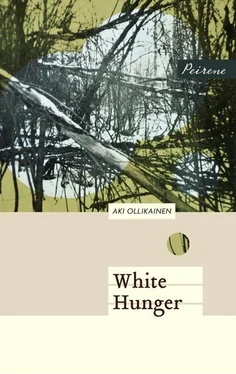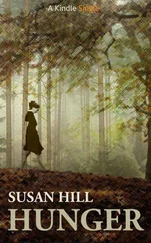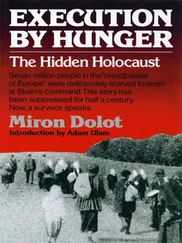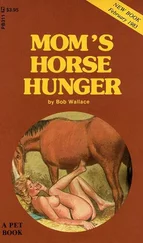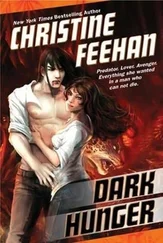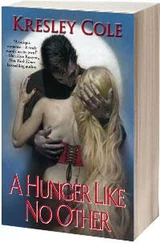They pass the tollbooth, which is unoccupied because it is winter. As soon as they reach the Little Bridge, the driver spurs the horse on to an almighty trot. Teo wonders why country folk always have to do that. The sledge rocks, but Teo has got used to the uneven passage during the journey and does not feel ill. Nor does the swaying seem to trouble Juho. His winter-grey eyes wide and wondering, the boy gapes at the railings flashing past and the frozen sea that opens up beyond them. He does not say much, but watches everything curiously. That is good, Teo thinks. It will take his mind off his mother.
The driver has to slow down in Siltasaari. Here there are factories and workshops, and the bustle that goes with them. Teo looks to the west with nostalgia; somewhere there, on the western tip of the island, there is a tavern where years ago, as a young student, he used to sit with Johan and Matias at their regular table, investing his pennies in a game of bowls, drinking and bawling Bellman’s ditties. Now Johan Berg sings no more, and Teo did not even sing him any Bellman in farewell, instead sticking to the same dreary hymns they both hated so much. The hymns were fitting for that landscape, though, for Johan’s grave under that grey sky, but he could have rebelled against the heavenly powers by singing Bellman: demonstrated defiantly that joy did once blossom amidst this misery, and the joy did not spring from a belief in otherworldly paradises, but from baseness and carnality, for which, in the end, we live, Teo thinks.
When they reach the Long Bridge, the driver roars to spur the horse into a trot again. He deems housing and others using the road nuisances, obstacles preventing him and the horse from showing off their wild speed. By rights, the rest of humanity would be gathered at the roadside, admiring the driver’s pace. Teo would like to remind the man of the difference between the cart and its passenger, a doctor, but knows he would only get a contemptuous look; the driver would consider him a coward. Perhaps with some justification, Teo has to concede.
He is relieved when they finally reach the district of Siltavuori. Once in the city, the driver pushes back his hat and steers the sledge with exaggerated calm.
*
Lars comes to the door himself. The maid is at some charity event. Lars notices Juho and bends down to look at the boy, puzzled. The boy returns the look, head tilted back.
‘Would you take him?’
Lars draws himself upright so fast that Teo fears he will fall backwards. Lars affects to have misheard, as if Teo has said something extremely funny.
‘Would you take the boy?’ Teo persists. ‘Rear him?’
Teo tells Lars where and how he found the boy, and everything he knows about the child. It is not a great deal, but still more than Juho himself knows about his journey.
When Lars finally manages to expel the air out of his lungs, the exhalation sounds like an objection. ‘You can’t take a child just like that.’
‘You can’t leave him just like that either.’
Teo asks Lars to seek Raakel’s opinion. Lars does not think that matters. He makes the decisions in their family. At least, decisions of this sort. Teo asks his brother to seek his wife’s view on that, too.
‘Come on in,’ Lars finally gets round to saying.
They sit in the living room, all except Juho, who stands before the large China rose, pushing his finger into the soil. Teo tells Raakel what he has just told Lars. Raakel gives her husband a long look. Teo takes Juho with him to Lars’s study. He selects The Tales of Ensign Stål from the shelf and shows the boy the pictures. Juho gazes at them solemnly, and leaves a muddy fingerprint next to each illustration. The print gets fainter on every page.
When they come back to the sitting room, Lars still seems hesitant. But when Raakel kneels down by the boy, the matter is settled.
She strokes Juho’s fair hair; the boy tilts his head after each touch.
‘Mama,’ Raakel says, and points at herself.
The boy looks at her wonderingly with his small, ice-grey eyes, then the ice suddenly breaks: Juho smiles, and tears run down Raakel’s cheeks.
Every now and then, the soft babbling of a brook takes you by surprise. The snow is melting. In the Old Church cemetery, crosses are uncovered. They peer round to see if it is yet time to emerge and remind man of his transience in the face of the cycle of the seasons.
Lars Renqvist enters the park through the Bulevardi gate. He walks with his hands behind his back, looking at the cloudless sky. A flock of sparrows catches his eye, and he remembers the previous July, and a sparrow pushing a copper disc along the paving stones of Senate Square. The poor bird moved its head this way and that, trying to grip the flat piece of metal with its beak, and, when it failed, nudging again.
‘Where are you going, Sisyphus?’ the senator said. He picked up the ten-penny copper coin. The bird flitted off, but not far, and puffed up its feathers crossly.
Together they had disparaged people’s carelessness, sowing cash like barley-corns as if a crop were going to spring up from between the cobblestones of the marketplace. Then the senator lifted up the coin and they examined it in the sunshine, the flourishes of the imperial ‘A’. The senator told Lars to note the fact that it was dull, having passed through many hands. This, in the senator’s view, signified one thing only: the economic vitality of these people. Who could have guessed? So this was a seed, in a way, the seed of a nation, the germ of its wealth, the senator said. He punched Lars’s shoulder in a chummy way, and Lars was happier than he had ever been before. Like Goethe and Eckermann, he thought — that is how they would be remembered. And nothing could go wrong any more; summer had finally come, and the cupola of St Nicholas’ Church was bathed in sunlight. As late as June, there were rumours of sledges still riding over icy lakes inland; it had seemed as if the winter would never end. One lean year had succeeded another, but then, in July, Lars felt that everything would take a turn for the better. The rye would have time to ripen. But autumn came, much too early, and an endless winter in its wake.
All the same, spring is here now.
‘You’re like the senate, squabbling over grain,’ Lars says to the sparrows.
He claps his hands, trying to chase the flock away. The birds have begun to interfere with his train of thought. Too busy fighting, they pay him no heed. Lars wonders who can afford to carry sheaves around the park at a time like this, when there is not a single straw left on the ground for the ordinary people to clutch at. He thinks of 1711, the plague year, and stares over to the other side of the park, as if seeing an old acquaintance there. Hundreds who died then are buried here; crop failures and epidemics visit this people regularly.
Two years after the plague, the Russians destroyed the city. But the inhabitants returned and rebuilt it. On the same site. We have survived plague and war, and so we are likely to get through this year, too, Lars thinks, but he hears a voice in his head: perhaps we shall, many others will not. Teo’s voice.
‘The House of the Estates is so dead when the senator is away.’ Sighing, Lars addresses a sparrow that has hopped right up to his shoe to peck at a husk.
The advice, or order, from Governor-General Adlerberg to the senator — to apply for a three-month break from his duties — means him leaving the senate. His political career is over and Lars knows it. The senator was not ready for retirement. Spring may come on time this year, but that in itself means nothing. A desolate truth will emerge from under the snow. For the people, the bloodletting will carry on well into the autumn.
Читать дальше
